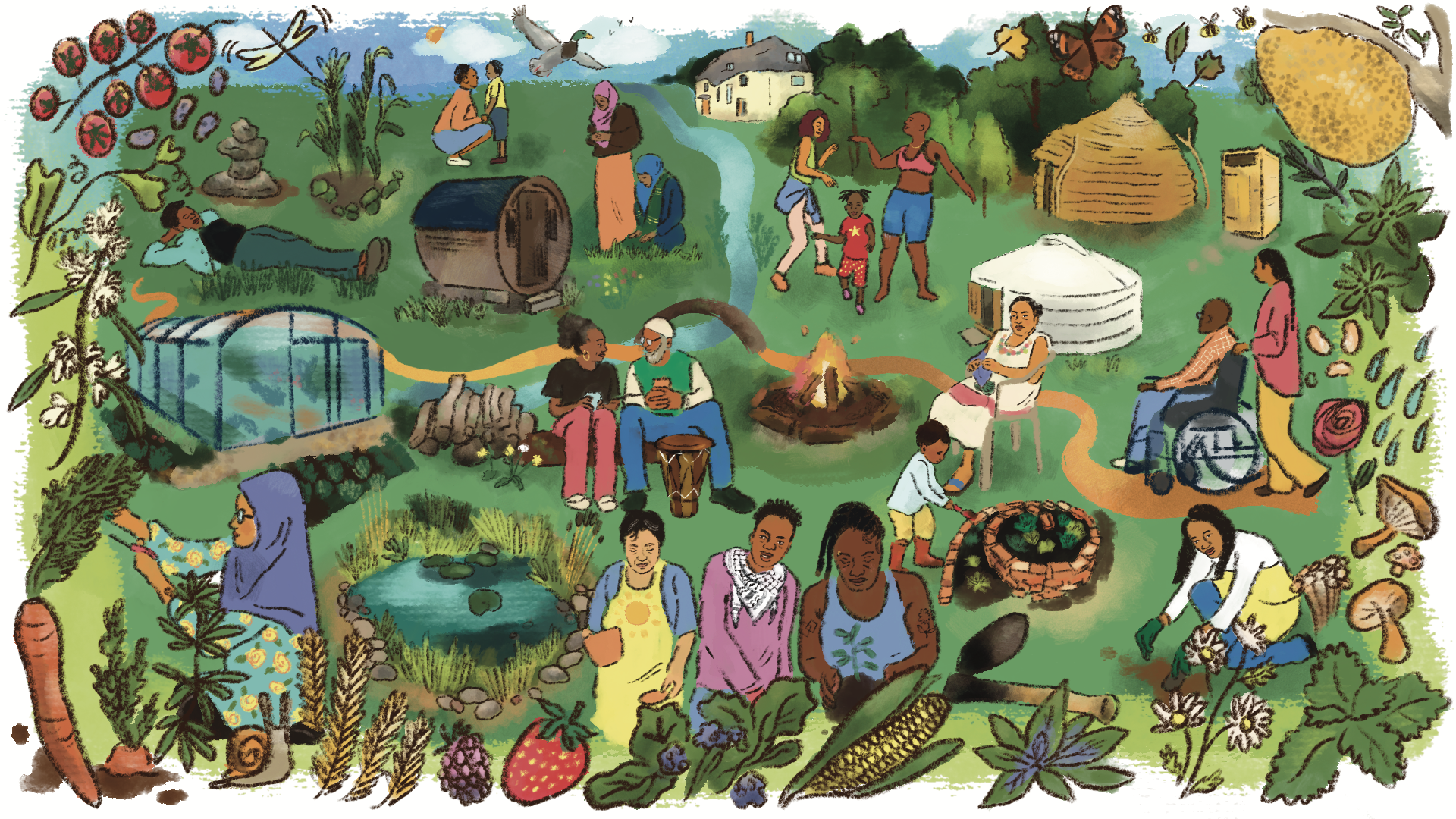
At the heart of LION’s mission, we are building towards a land project by and for Black and People of Colour. This land project will be a space where we can dream, co-create and nurture a reciprocal relationship with nature. We see this as a critical strategy to repair the colonial-rooted trauma of our separation from the land and its ancestral wisdom.
We are developing a model for collective ownership of land. It is important to LION that our project is accessible to and continuously shaped by our communities. To this end, we will prioritise land that is well-connected to London, offering opportunities for Black and People of Colour based in urban areas to learn land-based skills, grow food, rest and organise.
Our Land Project
Through enslavement and colonisation, Black and People of Colour have been and continue to be forcibly dispossessed and removed from our homelands. Beyond our physical removal from the land, our communities have also been severed from our deep, ancestral relationship with nature. In the context of capitalism, both forced and labour migration have further (up)rooted us to urban environments, disconnecting us from the ecosystems that once sustained us.
In England, land ownership remains deeply unequal. Half of the country is owned by just 1% of the population, primarily aristocrats and corporations. Public access to land is severely restricted, with only 8% of the land freely open to roam. Even within these limited spaces, Black and People of Colour face additional financial, structural, and cultural barriers that make nature feel unsafe or inaccessible. As highlighted in our Jumping Fences report, those seeking to establish projects in rural areas often encounter systemic roadblocks, exclusion, and racism.
We believe that land cannot be truly owned, but work within financial and legal parameters that are not our own to establish our land project. To us, having land in our names means stewarding land as a living inheritance from the ancestors and future generations.
Why do we need ‘Land In Our Names’?
– Illustration by Javie Huxley, Migrants In Culture
Our land project is shaped with and for our community. Through collective dreaming sessions, we have envisioned what this land could be. This beautiful visualisation, by Migrants In Culture, captures our aspirations:
A space for intergenerational healing and reconnection with the land
A place for rewilding and rematriation, where crops are grown in Afro-Indigenous ways—working with the land rather than extracting from it
A sanctuary where care and rest are centred over productivity-driven labour
A gathering place for farmers, growers, and those eager to learn—fostering skill-sharing and community exchange
Our land project is not an isolated effort but part of a broader movement. We are interwoven with a network of land justice initiatives within and beyond national borders. We believe in land liberation for all, and in this spirit, we see our project as one link in a growing web of solidarity, knowledge exchange, and mutual support.
Dreaming the land into being
Since 2024, we have been in the critical stage of developing a concrete strategy to get land. As part of this process, we are learning from existing land projects to understand both the beauty and the challenges ahead. We are also building partnerships with local land-tending and community groups, envisioning a future of shared growth and collaboration.
Currently, we are putting together our roadmap, navigating the financial and legal complexities of collective land ownership. In the coming months, we will open our roadmap to the community, inviting collective input as we take the next steps toward reclaiming land in our names.
In the meantime, you can support our land project by buying from our shop or making a donation:
Next Steps
– Illustration by Javie Huxley, Migrants In Culture


